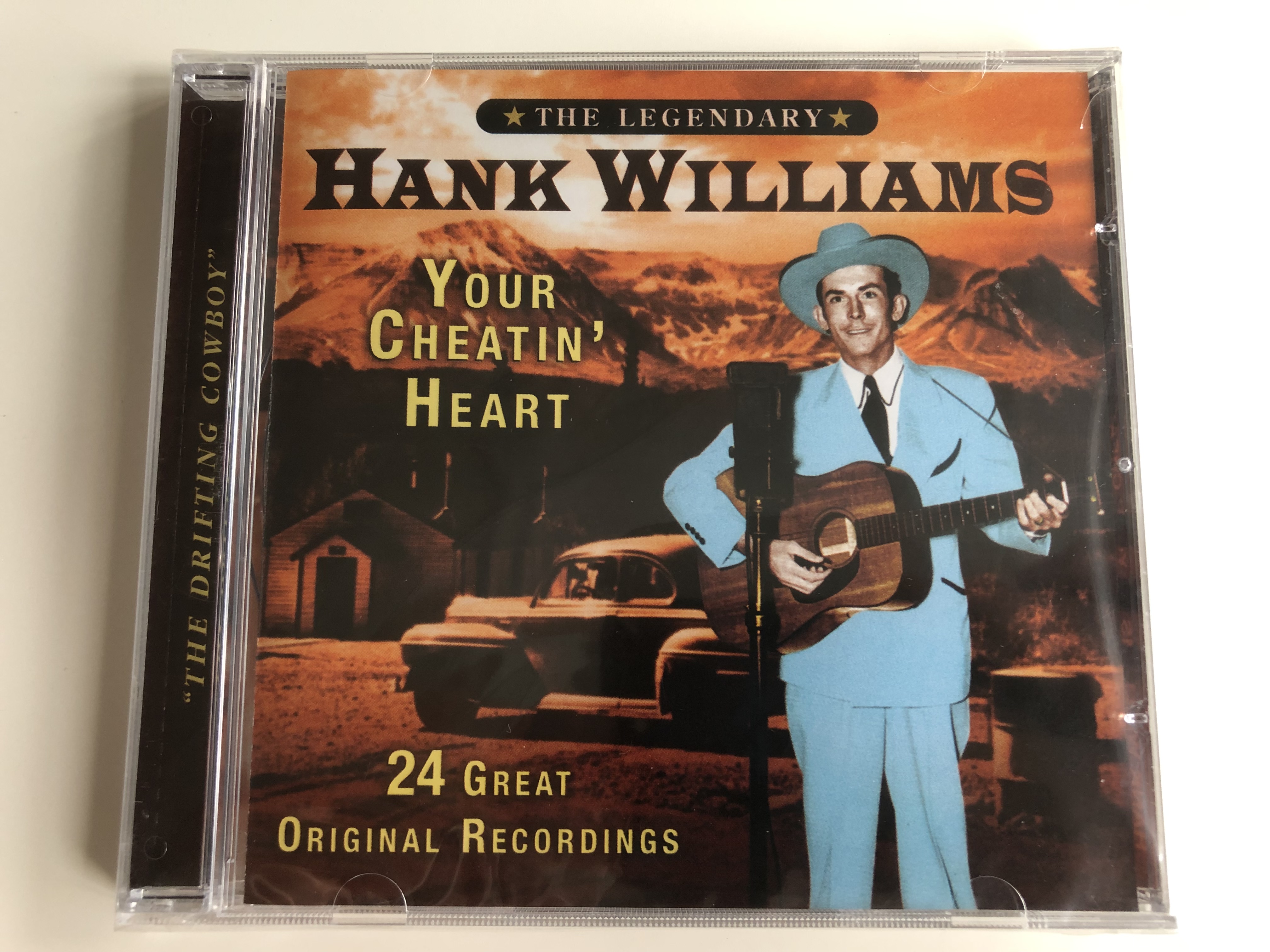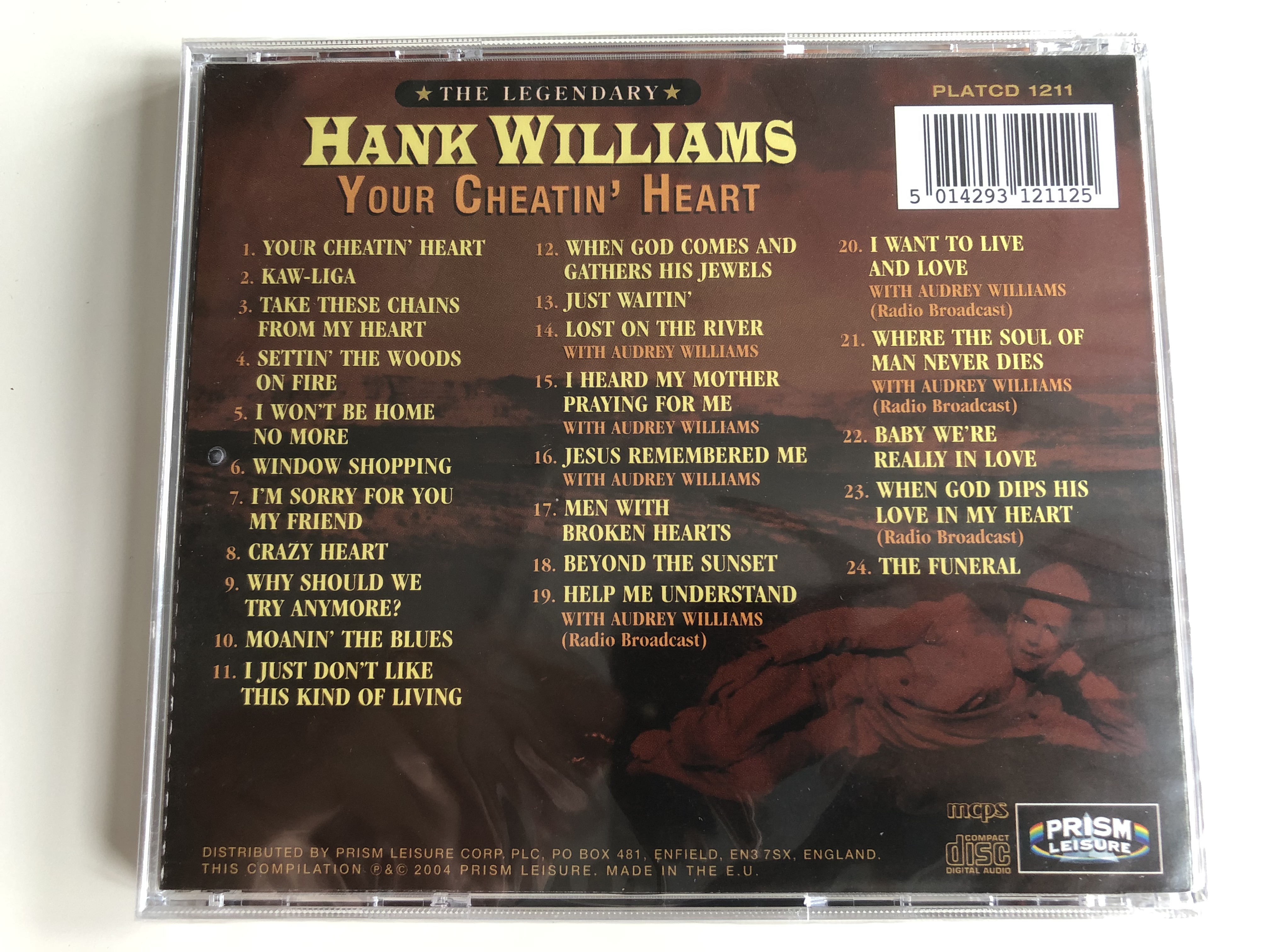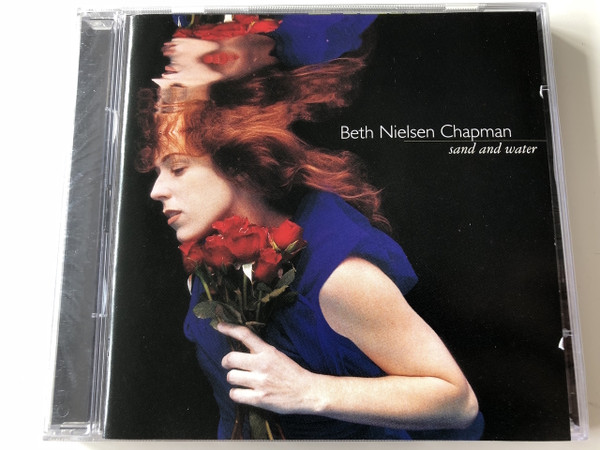Description
Hank Williams - Your Cheatin' Heart
The Legendary
The Drifting Cowboy
24 Great Original Recordings
AUDIO CD 2004
UPC 5014293121125
Made in the EU
Tracklist:
"Your Cheatin' Heart" is a song written and recorded by country music singer-songwriter Hank Williams in 1952, regarded as one of country's most important standards. Country music historian Colin Escott writes that "the song – for all intents and purposes – defines country music." He was inspired to write the song while driving with his fianceé from Nashville, Tennessee to Shreveport, Louisiana. After describing his first wife Audrey Sheppard as a "Cheatin' Heart", he dictated in minutes the lyrics to Billie Jean Jones. Produced by Fred Rose, Williams recorded the song on his last session at Castle Records in Nashville, Tennessee, on September 23.
"Your Cheatin' Heart" was released in January 1953. Propelled by Williams' recent death during a trip to a New Year's concert in Canton, Ohio, the song became an instant success. It topped Billboard's Country & Western chart for six weeks, while over a million units were sold. The success of the song continued. Joni James' version reached number two on Billboard's Most Played in Jukeboxes the same year, while Ray Charles' 1962 version reached number 29 on the Billboard Hot 100 and 13 on the UK Singles Chart. The song ranked at 213 on Rolling Stone's500 Greatest Songs of All Time, and was ranked number 5 on Country Music Television's 100 Greatest Songs in Country Music.
Hiram King "Hank" Williams (September 17, 1923 – January 1, 1953) was an American singer-songwriter and musician. Regarded as one of the most significant and influential American singers and songwriters of the 20th century, Williams recorded 35 singles (five released posthumously) that reached the Top 10 of the Billboard Country & Western Best Sellers chart, including 11 that ranked number one (three posthumously).
Born in Mount Olive, Butler County, Alabama, Williams relocated to Georgiana with his family, where he met Rufus Payne, who gave him guitar lessons in exchange for meals or money. Payne had a major influence on Williams' later musical style, along with Roy Acuff and Ernest Tubb. Williams would later relocate to Montgomery, where he began his music career in 1937, when producers at radio station WSFA hired him to perform and host a 15-minute program. He formed the Drifting Cowboys backup band, which was managed by his mother, and dropped out of school to devote his time to his career.
When several of his band members were conscripted into military service during World War II, Williams had trouble with their replacements, and WSFA terminated his contract because of his alcohol abuse. Williams eventually married Audrey Sheppard, who was his manager for nearly a decade. After recording "Never Again" and "Honky Tonkin'" with Sterling Records, he signed a contract with MGM Records. In 1947, he released "Move It on Over", which became a hit, and also joined the Louisiana Hayride radio program.
One year later, he released a cover of "Lovesick Blues" recorded at Herzog Studio in Cincinnati,[6] which carried him into the mainstream of music. After an initial rejection, Williams joined the Grand Ole Opry. He was unable to read or notate music to any significant degree. Among the hits he wrote were "Your Cheatin' Heart", "Hey, Good Lookin'", and "I'm So Lonesome I Could Cry".
Years of back pain, alcoholism and prescription drug abuse severely compromised his health. In 1952, he divorced Sheppard and was dismissed by the Grand Ole Opry because of his unreliability and alcohol abuse. On New Year's Day 1953, he died suddenly while traveling to a concert in Canton, Ohio at the age of 29. Despite his short life, Williams is one of the most celebrated and influential popular musicians of the 20th century, especially in regards to country music.
Many artists covered songs Williams wrote and recorded. He influenced Elvis Presley, Johnny Cash, Jerry Lee Lewis, Bob Dylan, George Jones, The Rolling Stones, and Mason Ramsey, among others. Williams was inducted into the Country Music Hall of Fame (1961), the Songwriters Hall of Fame (1970), and the Rock and Roll Hall of Fame (1987).
















